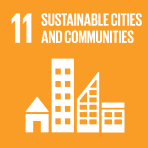Abstract
The UNECE region is experiencing a steady increase in the number and diversity of retired labour migrants and migrant eldercare workers. The international mobility of older persons is also on the rise. Yet the participation of migrants in the host communities and their access to welfare remains a challenging issue. Compared to native-born peers, older migrants are often more vulnerable to poor socio-economic and health status, social isolation and exclusion. Lower income, poorer working and housing conditions, including their concentration in low-income neighbourhoods, are among the factors affecting the life trajectories of many migrants. Migrant elder carers – independent of their age – often work informally without proper employment contracts and with limited access to health and social protection. There is, however, heterogeneity and variation in older migrants’ vulnerabilities and needs across and within ethnic groups, with consequent important welfare implications, which call for targeted policy responses at local, national, and international levels. A sound evidence base for such policy responses is lacking as older migrants are often overlooked in research, mainly due to a lack of data.
- 31 7月 2016




